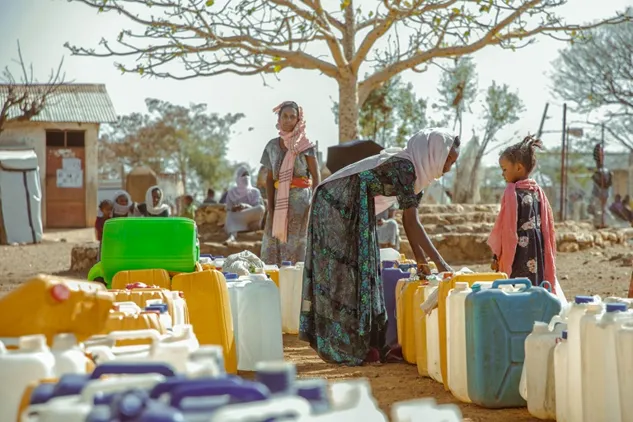Lancet Countdown report warns climate inaction costs millions of lives

The World Health Organization (WHO) and global partners are urging that the protection of public health be acknowledged as the most significant motivator for climate action. A new global report released today warns that an ongoing dependence on fossil fuels and a failure to adapt to a warming planet are already inflicting severe damage on human health.
The 2025 Lancet Countdown report on Health and Climate Change, produced in collaboration with the World Health Organization (WHO), finds that 12 out of 20 key indicators tracking health threats have reached record levels, demonstrating how climate inaction is costing lives, straining health systems, and undermining economies.
"The climate crisis is a health crisis. Every fraction of a degree of warming costs lives and livelihoods," said Dr. Jeremy Farrar, Assistant Director-General for Health Promotion and Disease Prevention and Care at the World Health Organization. "This report, produced with WHO as a strategic partner, makes it clear that climate inaction is killing people now in all countries. However, climate action is also the greatest health opportunity of our time. Cleaner air, healthier diets, and resilient health systems can save millions of lives now and protect both current and future generations."
“We already have the solutions at hand to avoid a climate catastrophe – and communities and local governments around the world are proving that progress is possible. From clean energy growth to city adaptation, action is underway and delivering real health benefits – but we must keep up the momentum,” said Dr. Marina Romanello, Executive Director of the Lancet Countdown at University College London. “Rapidly phasing out fossil fuels in favor of clean renewable energy and efficient energy use remains the most powerful lever to slow climate change and protect lives. At the same time, shifting to healthier, climate-friendly diets and more sustainable agricultural systems would massively cut pollution, greenhouse gas emissions, and deforestation, potentially saving over ten million lives a year.”
While some governments have slowed their climate commitments, the report indicates that cities, communities, and the health sector are taking the lead. Almost all reporting cities (834 out of 858) have either completed or are planning to complete climate risk assessments. The transition to cleaner energy is resulting in improved air quality, healthier job opportunities, tangible economic growth, and increased investment.
The health sector itself has demonstrated remarkable climate leadership, as health-related greenhouse gas (GHG) emissions decreased by 16% globally between 2021 and 2022, all while enhancing the quality of care.
Data submitted by the WHO indicate that an increasing number of health systems are evaluating risks and preparing for the impending dangers. Fifty-eight percent of Member States have completed a health vulnerability and adaptation assessment, while 60% have finalized a national health adaptation plan.
As the world gears up for COP30 in Belém, Brazil, the findings from the 2025 Global Report of the Lancet Countdown serve as a crucial foundation for expediting climate action focused on health. The World Health Organization (WHO) intends to leverage this momentum with the upcoming COP30 Special Report on Climate Change and Health, a collaborative initiative that will emphasize the necessary policies and investments required to safeguard health and equity while implementing the Belém Action Plan, which is anticipated to be a significant outcome of COP30.
The Lancet Countdown on Health and Climate Change was established in partnership with Wellcome, which continues to provide core financial support. The Lancet Countdown is led by University College London, in partnership with WHO and 71 academic institutions and UN agencies worldwide. Now in its ninth year, the report provides the most comprehensive assessment of the health impacts of climate change and the co-benefits of urgent action, ahead of COP30 in Brazil.
© 2025 Health Tribe.


